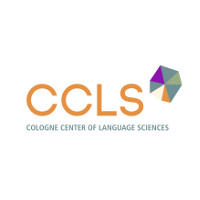Profile Module Historical Comparative Linguistics
What is the field of study about?
The focus is on two areas of linguistics. On the one hand there is the diachronic, i.e. historical area, which deals with language development and language change. On the other hand, there is the comparative area, in which areallinguistic, typological and genetic aspects are compared. Linguistic questions are dealt with in all areas of linguistics. An elementary component is the reconstruction of the basic Indo-European language, which is not documented.
In addition, more general questions are also addressed:
- Mechanisms of sound change
- Morphology (Analogy principle)
- diachronic typology, i.e. language change from a typological point of view, where one can recognize which developments are frequent and which development paths exist (grammaticalization theory)
What do the Historical-Comparative Linguistics in Cologne do?
As is usual at universities in German-speaking countries, the Indo-European language family is in the foreground. On the one hand, this is due to the history of science, as the major cultural languages of Europe, Latin and Greek, have been very well researched. On the other hand, the Indo-European languages have diachronic depth. The oldest documented language levels show a relative proximity to the reconstruction. Therefore the learning of the historical grammar of some ancient Indo-European languages (especially Latin, Greek, Sanskrit and Gothic) and certain grammatical phenomena concerning these languages is a fundamental part of the study. Another research focus is on the phenomenon of language change and diachronic typology.
What are the prerequisites?
The Latinum is a prerequisite. In addition, basic knowledge of Ancient Greek (as in SM5 of the BA programme Linguistics & Phonetics) is also obligatory for the modules of this focus. If these skills are missing, they can be acquired at the beginning of the study programme. Knowledge of other Old Indo-European languages is desirable.
In addition to these language requirements, the theoretical basics as well as the historical-comparative method should be known. It is possible to attend the introductory courses of the BA programme Linguistics & Phonetics to refresh these basics.
What is the field of study not about?
- The study programme is research-oriented. It does NOT qualify for professions that require, for example, a teacher training course.
- The basic language (here mainly Indo-European) is reconstructed, not the original language of all languages of the world.
- The focus is almost exclusively on the Indo-European language family. Nevertheless, it is possible that, for example, the historical-comparative method is also applied to other language families in final theses.
- The Latinum is a prerequisite, the Graecum, however, is not.
Which modules is the field of study principally involved in?
AM 6a, SM 1f, SM 2c
